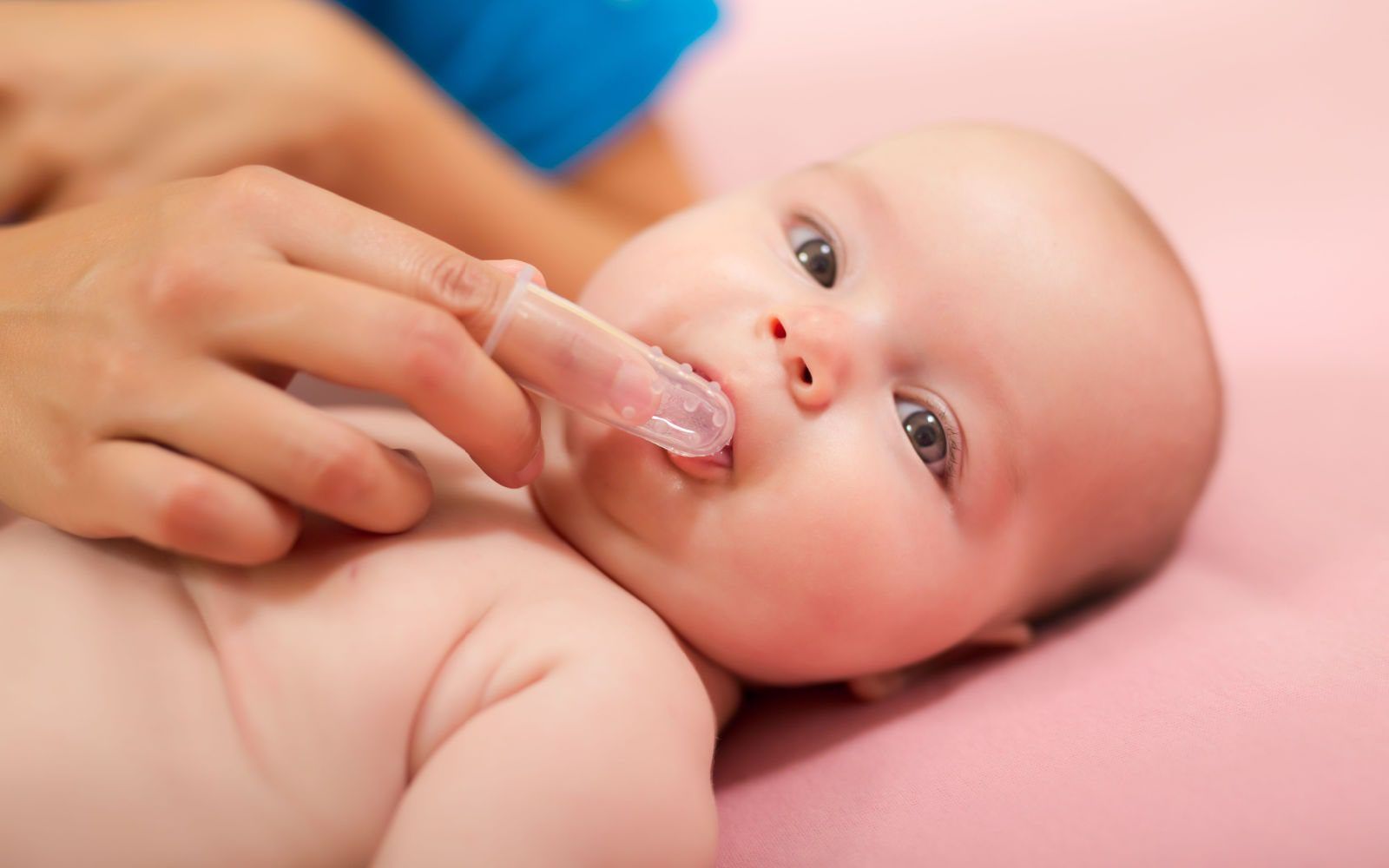How To Care For Your Newborn’s Gums

Did you know that babies are born with 20 teeth underneath their gums? While your infant’s first tooth won’t show up until they’re around six months, your newborn’s gums are just as vulnerable to bacteria, and it’s essential to take care of their gums right away to ensure that their teeth come in healthy. Parents should care for their gums and teeth immediately before the first tooth, as it’s essential for their growth and development. Here are our suggestions for how to best clean their teeth.
Why Caring For Newborn Gums is Important For Their Health
Your newborn’s baby teeth are essential for many reasons – they hold space for the permanent teeth to show, form the shape of your child’s face, and make it easier for your child to speak, chew, and eat. Their first tooth will appear when they are six months old, usually the lower front teeth. However, tooth decay can happen before the first set of teeth pop in, as plaque can build up along the gumline of your infant’s mouth. When your newborn drinks or eats food, bacteria can form a layer along the gums that produce acids. Over time, these acids can harm the teeth underneath the gums and cause cavities, leading to pain, infection, and even emergency care.
Steps to Take To Protect Their Gums and Budding Teeth
As pediatric dentists, we’re prepared to help you through these first few months and beyond. Before any of the teeth come in, here are our suggestions for how to clean your newborn’s mouth:
- Clean Their Mouth Twice a Day: Before and after their teeth come in, clean their mouth twice daily and after each feeding. Use a sterile gauze pad or soft cloth over your finger and dry it with water. Use a pad or cloth to wipe down their teeth and gums to remove bacteria gently.
- Small, Soft Toothbrushes: Once their teeth start to come in, you can start using a small, soft toothbrush and brush in soft, circular motions to get both the teeth and gums. Do this on all sides of the mouth.
- Fluoride Toothpaste: Fluoride toothpaste should be used once the first tooth comes in. Before age three, the toothpaste should be about the size of a grain of rice to help prevent swallowing, and after age three, use toothpaste the size of a pea to encourage teaching them to brush their teeth.
- Brushing At Age Two: By age two, your child should be brushing their teeth independently, and you can reinforce brushing their teeth by doing it with them.
Many other ways to prevent tooth decay in infants include limiting feeding bottle uses, avoiding night feedings, and weaning methods. However, our dentists at Smiling Kids Pediatric Dentistry, Indianapolis, can help strengthen their teeth and protect them from tooth decay by providing dental checkups for your infant. When they are older, give regular cleanings to ensure they are healthy. Make sure to schedule an appointment today for more information about our services and how our dentists can help your newborn’s oral health!

